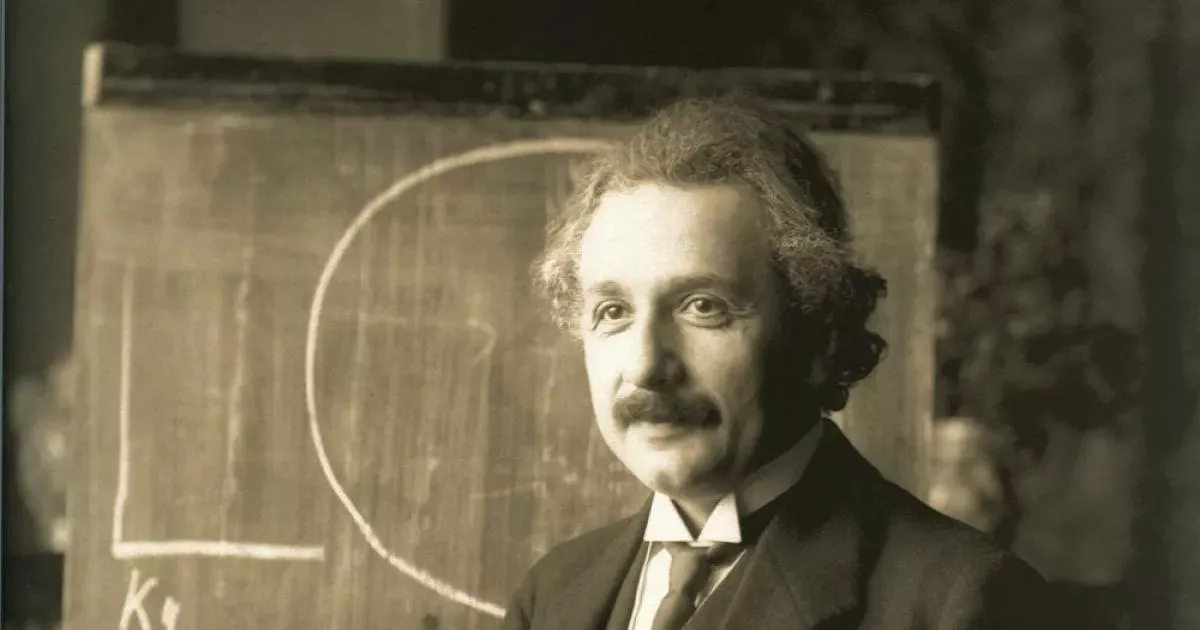Life is full of challenges, and Albert Einstein faced many. Discover key struggles and how they were overcome.
Albert Einstein (1879-1955) was a German-born theoretical physicist renowned for his theory of relativity. This included the famous mass-energy equivalence formula, E=mc². He also significantly contributed to the development of quantum mechanics and received the 1921 Nobel Prize in Physics for his explanation of the photoelectric effect. His work revolutionized our understanding of gravity, space, time, and the universe. Einstein is widely considered one of the most influential scientists of the 20th century.
June 1913: Development of the Entwurf Theory
In June 1913, Einstein's investigations resulted in the Entwurf ('draft') theory, a preliminary and complex version of general relativity with additional gauge fixing conditions.
November 1915: Abandonment of the Entwurf Theory
In November 1915, after more than two years of intensive work, Einstein realized that the hole argument was mistaken and abandoned the Entwurf theory.
1932: FBI Creates Secret Dossier on Einstein
In 1932, the FBI created a secret dossier on Albert Einstein, which grew to 1,427 pages by the time of his death.
February 1933: Decision Not to Return to Germany
In February 1933, while visiting the United States, Einstein decided he could not return to Germany due to the rise of the Nazis under Adolf Hitler.
March 1933: Gestapo Raids and Renunciation of Citizenship
In March 1933, the Gestapo repeatedly raided Einstein's family's apartment in Berlin. Learning of the Enabling Act and unable to return to Berlin, Einstein surrendered his passport at the German consulate in Antwerp, Belgium, formally renouncing his German citizenship on March 28, 1933. The Nazis later confiscated and sold his boat and converted his cottage into a Hitler Youth camp.
April 1933: Jewish Scientists Barred from Official Positions
In April 1933, Einstein learned that the new German government had passed laws barring Jews from holding official positions, including teaching at universities, leading to the dismissal of thousands of Jewish scientists.
April 1933: Aided by Academic Assistance Council
In April 1933, Einstein was aided by the Academic Assistance Council, founded by William Beveridge, to help academics escape Nazi persecution, facilitating his departure from Germany.
July 1933: Visit to England and Protection
In late July 1933, Einstein visited England for about six weeks at the invitation of Commander Oliver Locker-Lampson, staying in a secluded wooden cabin on Roughton Heath in Norfolk. Locker-Lampson provided bodyguards for Einstein's protection, which was publicized in the Daily Herald on July 24, 1933.
1933: Decision to remain in the US
In 1933, while Einstein was visiting the United States, Adolf Hitler came to power in Germany. Horrified by the Nazi persecution of Jews, Einstein decided to remain in the US.
July 1939: Einstein Supports Nuclear Weapons Research
In July 1939, Leó Szilárd and Eugene Wigner visited Albert Einstein to discuss the possibility of atomic bombs, an idea Einstein, a pacifist, had not considered. They requested Einstein's support in writing a letter with Szilárd to President Roosevelt, urging the U.S. to pay attention to nuclear weapons research and engage in its own research.
1948: Establishment of the State of Israel
In 1948, the state of Israel was established without Albert Einstein's help, with him playing only a minor role in the Zionist movement due to his opposition to a Jewish state.
November 1952: Einstein Offered Presidency of Israel
In November 1952, Prime Minister David Ben-Gurion offered Albert Einstein the largely ceremonial position of President of Israel following Weizmann's death. Einstein declined, expressing he was "deeply moved" but unable to accept.
1954: Einstein regrets signing letter to Roosevelt
In 1954, Albert Einstein told his friend, Linus Pauling, that he regretted signing the letter to President Roosevelt recommending the creation of atom bombs, but justified it due to the danger of Germany developing them first.
1955: Einstein signs manifesto highlighting danger of nuclear weapons
In 1955, Albert Einstein, along with Bertrand Russell and other intellectuals and scientists, signed a manifesto emphasizing the danger of nuclear weapons.
Mentioned in this timeline

The White House located at Pennsylvania Avenue NW in Washington...
California is a U S state on the Pacific Coast...
India officially the Republic of India is a South Asian...
New Zealand is an island country in the southwestern Pacific...

Washington D C is the capital city and federal district...
Germany officially the Federal Republic of Germany is a nation...
Trending
16 minutes ago Rugby Property Assets acquires Cavendish Walk Shopping Centre in Merseyside for £1.5m.
1 hour ago Medvedev, Bublik, and Rublev advanced; Medvedev seeks rankings change in Dubai.

1 hour ago Lauren Chapin, 'Father Knows Best' Child Star, Passes Away at 80
2 hours ago Tim NeCastro Announces Retirement as Erie Insurance CEO After 10 Years

1 hour ago Scientists speculate on insights from government's UFO files release directed by Trump.

4 hours ago Apple MacBook Pro: Touchscreen, Dynamic Island, and New Interface Coming Soon.
Popular

Jesse Jackson is an American civil rights activist politician and...

Susan Rice is an American diplomat and public official prominent...

Barack Obama the th U S President - was the...

Michael Joseph Jackson the King of Pop was a highly...

XXXTentacion born Jahseh Dwayne Ricardo Onfroy was a controversial yet...

Bernie Sanders is a prominent American politician currently serving as...
